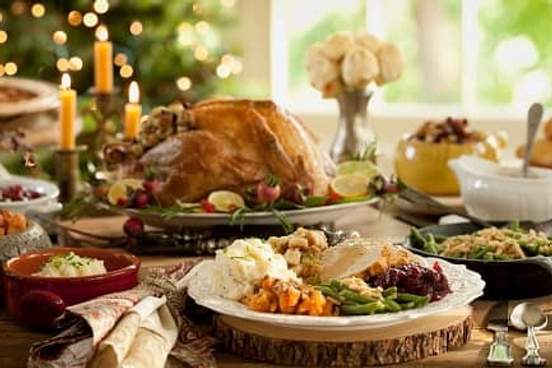
Why a post-meal walk
Ah, the holiday feast: hours of anticipation and mouth-watering smells, followed by even longer hours of torpor and pie once the meal has been consumed. During this time, overstuffed guests might engage in conversation, watch TV and fall into a food coma, or perhaps the more intrepid might venture outdoors—maybe for a "post-meal walk," or a "postprandial walk." (Prandial is an adjective meaning "of or relating to a meal.")
The word walk may be too daunting for some whose top buttons are already undone, so here are a few alternatives to describe journeys of all sizes.

Stroll
Stroll is believed to come from the German dialect strollen and originally meant "to go from place to place in search of work or profit." Nowadays, it implies simply a walk at a leisure pace without purpose or destination. A perfect word for suggesting a calorie-burner after a holiday feast.
A post-meal stroll can improve digestion, heart health, blood sugar management, and regulate blood pressure.
— Lisa Joyner, Country Living, 27 Jan. 2021
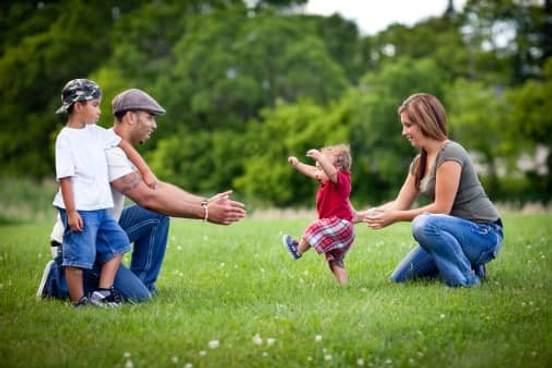
Toddle
The first steps of toddle are unknown before it walked into the English language at the turn of the 17th century as a word for the act of taking short, unsteady steps like that of a young child learning to walk. In short time, it referred to walking in a leisurely manner. By the early 19th century, the noun form stepped in.
A "post-meal toddle" could appeal to those who just have the energy for a walk around the block (and especially to those trying to keep their toddlers' hands out of the desserts).
The Mayflower in Lymington is ... within easy walking distance to Lymington-Keyhaven Nature Reserve which provides an idyllic place for a toddle or a stroll.
— Leanne Bayley, Hello!, 21 Sept. 2021
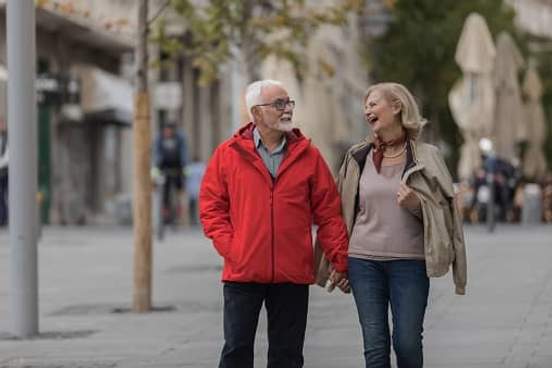
Saunter
Saunter is believed to be related to an obsolete Middle English word meaning "to muse" or "to brood." Early usage evidence of saunter refers to traveling aimlessly from place to place or to dawdling, and certainly some musing and brooding can occur during such travel, but no clear path connects the words.
With its uncertain history aside, saunter has strolled along confidently as a word for walking about in a leisure manner.
What's a trip downtown without a saunter through Pioneer Courthouse Square? While gazing at the 75-foot tree and enjoying the hustle and bustle of last-minute shoppers, grab a hot drink from one of the nearby coffee shops….
— Joe Fitzgibbon, The Oregonian (Portland, Oregon), 21 Dec. 2006

Promenade
Promenade comes from the French verb promener meaning "to take for a walk." The word first saunters about in the English language, however, as a noun for a leisure walk especially in a public place in order to see and be seen. A "postprandial promenade" seems best suited for the fashionably attired who want to get out.
You do have people who dress up for dinner. It's an occasion. It's similar to what you have in Europe where older people will dress up on Sunday afternoons and go for a promenade.
— Peter Oliver, quoted in The Toronto Star, 11 May 2003
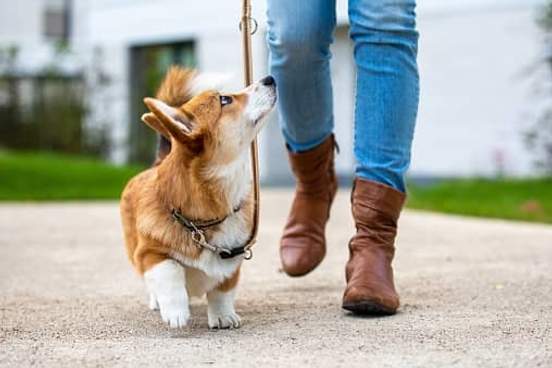
Paseo/Pasear
In Spanish pasear means "to take a stroll." It is from paso, meaning "passage" or "step." English borrowed pasear and paso as paseo in the 19th century as words for a leisurely, usually evening, stroll.
You have to take a paseo after dinner, a ritual walk, or you face side effects. These include indigestion, melancholy, ill temper, alcohol poisoning, and social, cultural, gastronomic, and physical decline.
— Patrick Symmes Condé Nast Traveler, 9 June 2011
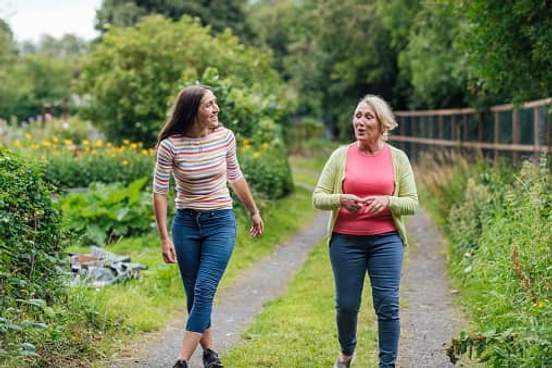
Ambulation
Ambulation (coming from the Latin ambulāre, meaning "to walk") refers to the act of walking. Other ambulāre words are circumambulation ("the act of walking in a circle"), deambulation (a synonym of promenade), and perambulation ("the act of walking about"), all of which are viable alternatives to walk. And they are sure to pique curiosity when used as a suggestion for the next step after feasting.
Amble is also part of this word family and is synonymous with saunter.
If you're looking for a traditional, warm-and-fuzzy kind of holiday…, this German-inspired lantern parade might be your jam: Dozens of locals … hit the streets around City Hall singing holiday songs and carrying illuminated authentic German lanterns…. The parade begins and ends at Christmas Village in LOVE Park, and includes an amble around Dilworth Park and its outdoor ice skating rink."
— Josh Middleton, The Philadelphia Citizen, 9 Dec. 2019
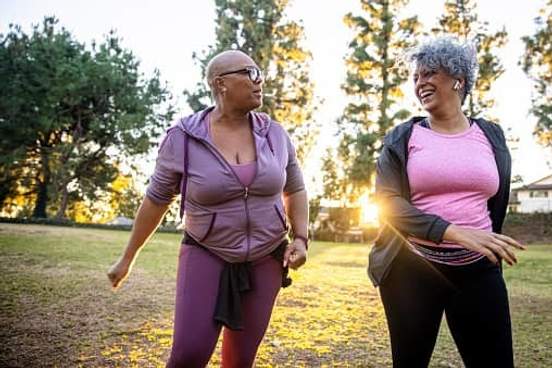
Constitutional
An old-fashioned constitutional is, well, good for one's constitution. Constitution is familiar as a word for a system of governing beliefs and laws, or the document outlining such a system, and less as a word for a person's physical health and condition. (Constitution comes from Latin constituere, meaning "to set up.")
By the 19th century, a walk taken to improve one's health, or constitution, might be called a "constitutional walk," or simply a "constitutional."
Do you fancy having an early supper and then going to a short opera? Or what about going to a short opera and getting home early, alternatively having a sophisticatedly late meal? Come to that, why not have an early supper, go for a constitutional and then have another meal before turning in, and forget about opera altogether?
— Michael Tanner, The Spectator, 1 May 2004

Dander
In Great Britain, taking a "post-meal dander" might be suggested. Dander is a word used in certain dialects for a leisurely walk or stroll. The word is of unknown origin, but don't brush off a dander because of that.
"Come," Quin says to me in a gentle voice. "Let's take a dander, shall we?" "A dander?" "A wee stroll," he tells me.
— Melody Carlson, Notes from a Spinning Planet: Ireland, 2006

Jog
The verb jog is believed to be a 16th-century alteration of an older dialectal word, shog. Both words were synonymous during their time together, as shown in this quote taken from A Glossary of Words used in the Wapentakes of Manley and Corringham, Lincolnshire: "I mun be shoggin'; I doänt walk very fast noo."
A post-meal jog is not for everyone. Guests who join are encouraged to go at their own pace.
Forgive yourself if you do overeat. You would have to overeat by 3,500 calories to gain a pound. Your overall eating trends are what create your weight and health, not one day of splurging. Plan a post-Thanksgiving jog or walk with friends or family.
— Francesca Donlan, The News-Press (Fort Myers, Florida), 23 Nov. 2010

Trot
Trot jogged into English from Anglo-French, but its linguistic journey goes back to Germanic languages, in which it meant "to tread." It is familiar as a word for the moderately fast gait of a quadruped (such as a horse), but a biped can also trot. The biped trot falls between a walk and a run in speed and action.
Trot is also used in the name for races run during holiday seasons. That trot is not recommended as a post-meal activity.
Jonathan Beskin … said, "The Levis Jewish Community Center's annual Turkey Trot 5K has become a Thanksgiving Day tradition in our community. It's something people really look forward to."
— The South Florida Sun-Sentinel, November 10, 2021





